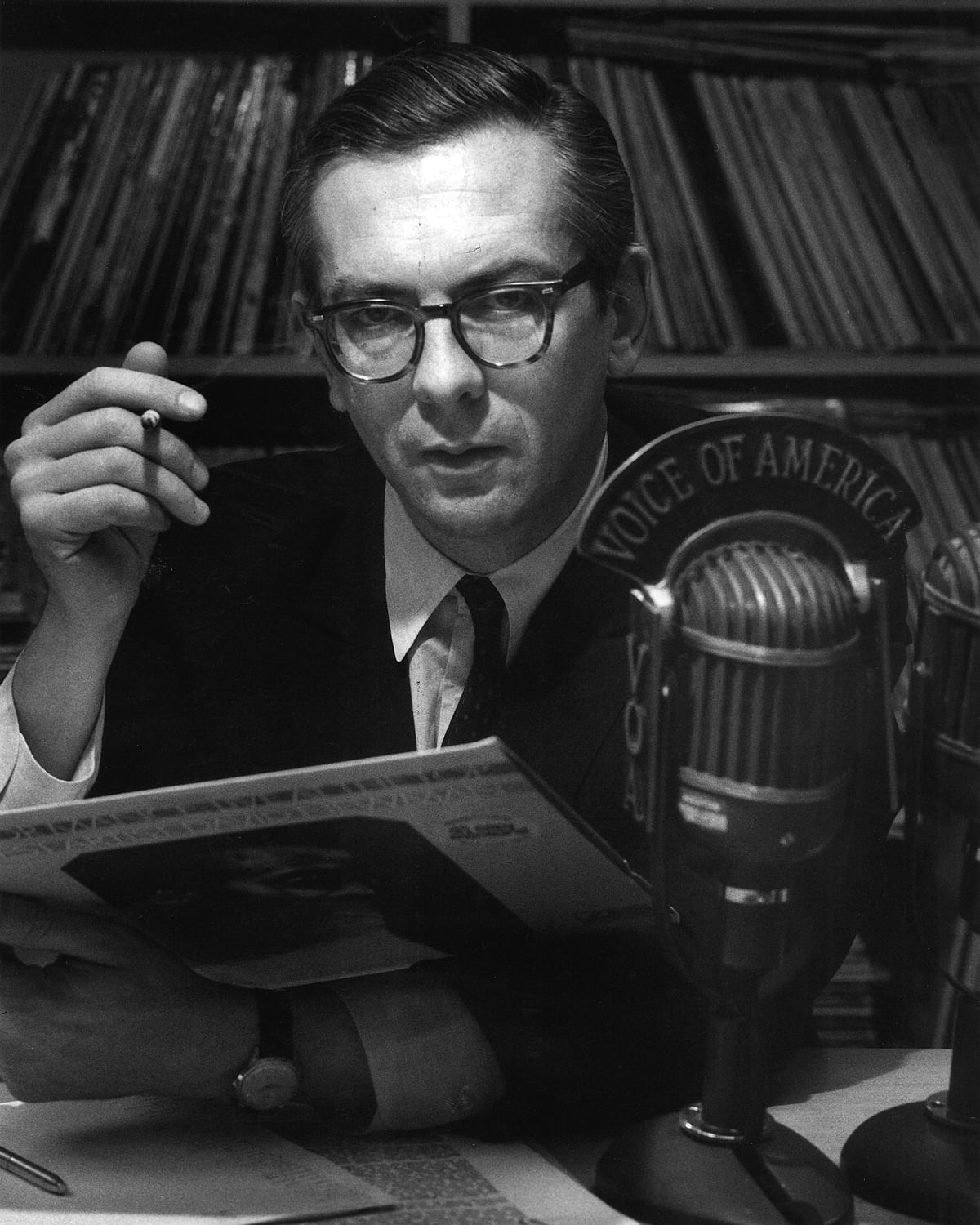
The present tensions between USA and Russia on the Ukraine crisis bear a stark resemblance to the cold war between the two nations back in the mid 50s. Jazz played a major role in helping defuse tensions and the possibility of another war.
Recently, I spoke to a jazz musician in Krakow, Poland, Leszek Wisniowski on how he and other musicians were introduced to jazz. One name cropped up which I recognised instantly and exclaimed, Willis Conover!
In the 70s, shortwave radio ruled the airwaves, particularly at night when radio signals were stronger. Radio was a constant companion, and I discovered many stations playing classical western, pop, rock, country, and jazz on the VOA (Voice of America) Jazz Hour.
Willis Conover was the ‘Voice’ who spoke in slow, clear English in a very articulate manner. “Willis Conover speaking. This is the Voice of America, Jazz Hour,” he would say. He was the antithesis of a radio host as the rest spoke in an excited, hurried manner.
Since winning a talent contest as a university student in 1955, Conover remained on the airwaves for as long as the cold war lasted — a staggering 41 years. Conover hosted Music USA in the first hour but it was the second hour where he hosted the Jazz Hour that made him a hit with the listeners.
The Jazz hour had its signature tune, Ellington’s “Take The A Train” signalling the start of the show by radio host Conover who besides choosing great jazz tracks to play, described in depth the composer and the sidemen who played on each jazz standard. He also interviewed great personalities such as Dizzy Gillespie, Louis Armstrong, and Ella Fitzgerald.
Conover’s hosting the show was no accident. It was the Cold War, remember? There was also huge civil unrest and racial conflicts, and protest rallies across the US. In order to project a better image overseas and in an apparent move to counter Soviet propaganda, the US PR machinery decided to showcase its culture and arts by sending classical and folk-based groups overseas to perform initially.
This wasn’t met with great enthusiasm in Europe as the Soviets countered by showcasing its own famed Bolshoi Ballet and classical orchestras — a cultural war of sorts was brewing. That’s when an official suggested that the US must look at promoting jazz instead.
The VOA Jazz Hour by Conover was already on air then and Dizzy Gillespie was chosen as the first brand ambassador to represent the US in jazz concerts spread across Europe and the Eastern Bloc and in Turkey as well. Jazz spread like wildfire in this part of the world. Concerts by US jazz musicians were a sellout as eager fans thronged venues in Eastern Europe and Russia. Dave Brubeck Quartet did a concert tour of 30 cities in Europe. Conover captured all this on air, following US jazz concerts across Europe.
Although under the Soviet-occupied regions, all things American including jazz broadcasts were banned, Conover had special transmitters installed in Munich and Tangiers so that listeners worldwide could continue to enjoy his broadcasts, tuning into them secretly at night.
For musicians, Conover’s weekly broadcasts were ‘lessons’ in jazz. The rise of conservatories and jazz clubs in Europe and in Russia can probably be attributed to the success of Conover’s VOA Jazz Hour.
But back home in America, Conover was virtually unknown because he continued to broadcast on shortwave only which listeners in America seldom tuned into.
One influential jazz critic summed it best “Willis Conover did more to crumble the Berlin Wall and bring about the collapse of the Soviet Empire than all the Cold War presidents put together.”
(The writer is director of Bangalore School of Music)